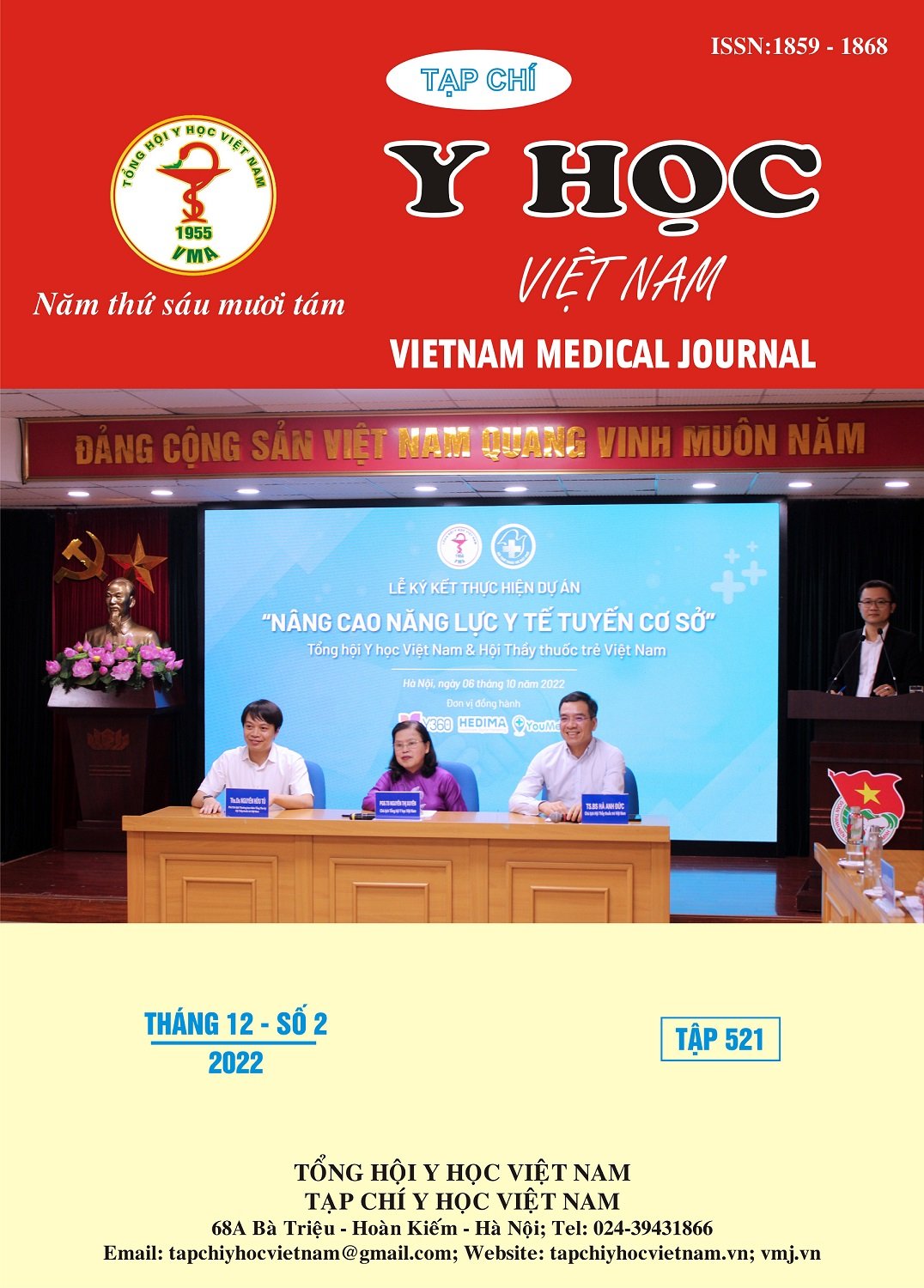MICROSATELLITE INSTABILITY STATUS IN COLORECTAL CANCER AT HA NOI ONCOLOGY HOSPITAL
Main Article Content
Abstract
Introduction: Microsatellite instability (MSI) is one of three major mechanisms in colorectal (CRC) carcinogenesis. MSI has been identified as a reliable prognostic indicator in CRC, with an additional role in predicting the lack of benefit of 5-FU-based adjuvant chemotherapy. It also helps screen for lynch syndrome. Objective: Evaluate MSI status, clinical patterns in CRCs and correlate with histopathology at Ha Noi Oncology Hospital. Methods: 96 patients with colorectal cancer were studied by Immunohistochemistry (IHC) method with MLH1, PMS2, MSH2, MSH6 markers. Result: MSI rate is 29.2%; Rate of clinical patterns base on IHC: sporadic CRCs: 70.8%, unclear: 17.7%, LS: 11,5%. Tumor infiltrating lymphocytes and Crohn's-like lymphoid reaction status have significant correlation with MSI status and LS (p<0,05). Other factors such as histologic type, histologic grade, lymph node status, and infiltration were not found to have statistically significant associations with microsatellite instability and LS. (p>0,05). Conclusion: MSI rate is 29.2%; Rate of clinical patterns base on IHC: sporadic CRC: 70.8%, unclear: 17.7%, Lynch (LS): 11,5%; CRCs with MSI and LS have characteristic histopathological features: Tumor infiltrating lymphocytes and Crohn's-like lymphoid reaction.
Article Details
Keywords
Microsatellite instability (MSI), histopathology, Immunohistochemistry, Lynch syndrome.
References
2. Chủ NV, Giang TL. Tình trạng mất ổn định vi vệ tinh trong ung thư biểu mô tuyến đại trực tràng giai đoạn I-II. Tạp Chí Học Việt Nam. 2021;498(2).
3. Giardiello FM, Allen JI, Axilbund JE, et al. Guidelines on genetic evaluation and management of Lynch syndrome: a consensus statement by the US Multi-society Task Force on colorectal cancer. Am J Gastroenterol. 2014;109(8):1159-1179.
4. Quốc Đạt N. Đánh gái tình trạng mất ổn định vi vệ tinh trong ung thư đại trực tràng và liên quan mô bệnh học. Tạp Chí Y học Việt Nam, 2022; 516(2).
5. Sargent DJ, Marsoni S, Monges G, et al. Defective Mismatch Repair As a Predictive Marker for Lack of Efficacy of Fluorouracil-Based Adjuvant Therapy in Colon Cancer. J Clin Oncol. 2010;28(20):3219-3226
6. Jenkins MA, Hayashi S, O’shea AM, et al. Pathology Features in Bethesda Guidelines Predict Colorectal Cancer Microsatellite Instability: A Population-Based Study. Gastroenterology. 2007;133(1):48-56.
7. Dolcetti R, Viel A, Doglioni C, et al. High Prevalence of Activated Intraepithelial Cytotoxic T Lymphocytes and Increased Neoplastic Cell Apoptosis in Colorectal Carcinomas with Microsatellite Instability. Am J Pathol. 1999;154(6):1805-1813.
8. Harrison JC, Dean PJ, El-zeky F, Vander Zwaag R. Impact of the Crohn’s-like lymphoid reaction on staging of right-sided colon cancer: Results of multivariate analysis. Hum Pathol. 1995;26(1):31-38.


